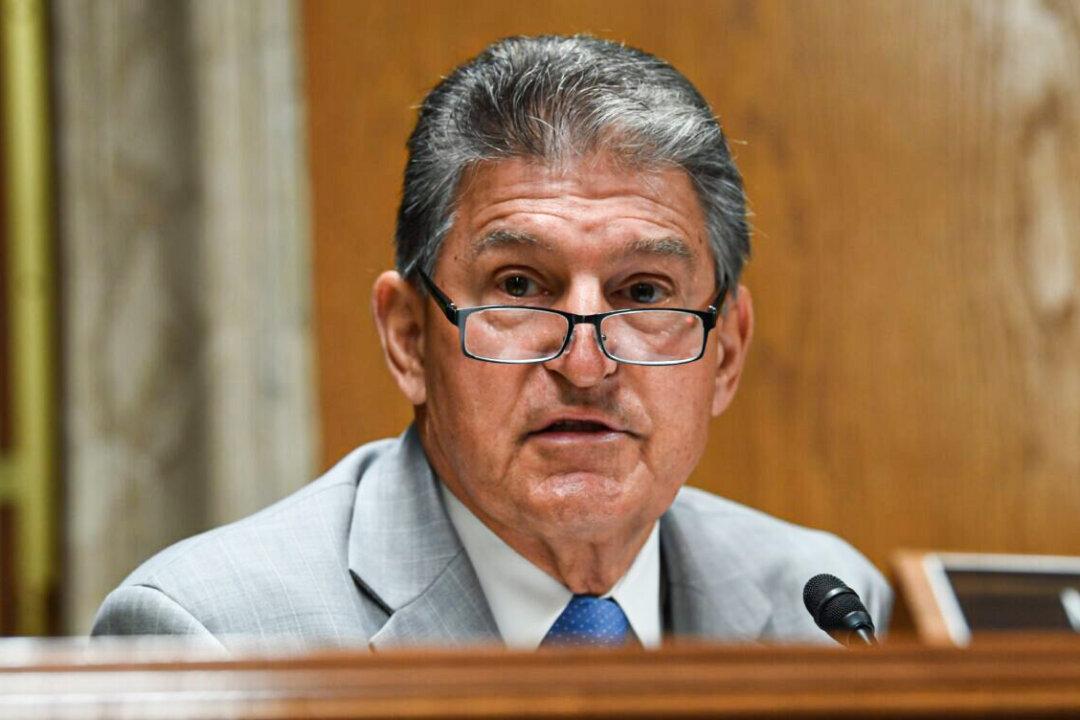Sen. Joe Manchin (D-W.Va.) has indicated that he may vote with Republicans to strike down President Joe Biden’s wide-reaching private sector COVID-19 vaccine mandate, adding another threat to a list of growing legal challenges against the measure.
Through a political procedure instituted in the 1990s, Manchin’s defection would be enough to overturn the private sector mandate entirely.





